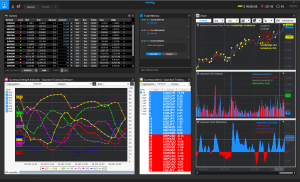Benjamin Franklin famously said, “In this world nothing is certain but death and taxes.” How certain are freelance writers about filing their taxes? Most freelance writers are probably unaware of the tax deductions that they have coming their way, unless they have retained a good accountant. With all of the hard work that freelance writers put into their craft, they need to be aware of what expenses qualify for deductions well before April 15th so that all of the proper documentation is accounted for.

According to the IRS, there are numerous tax deductions for freelance writers. First, be sure to determine if you are a freelance writer or an employee. Freelance writers will receive payments from multiple sources where the taxes are not taken out. If taxes have been deducted, you will be considered an employee rather than a freelance professional. Employee paperwork should be filed in a W-2 tax worksheet. Freelance work will appear on a 1099-MISC form. A 1099-MISC is similar to a W-2 in that it is used to report the income you receive. Income and the expenses that are related to self-employment get filed on a 1040 Schedule C form. In other words, the 1099 will go on the Schedule C.
Before you begin, decide if you want to do your taxes yourself or have a certified CPA prepare them for you. There is certainly no shame in retaining an accountant, especially if numbers are not your forte. A person who freelances and has a day job might want to strongly consider using an accountant. Keep in mind that accounting fees could range in price anywhere from $150-$1000, depending upon if an individual uses an inexpensive accountant or if a person opts for a more extensive return prepared by a CPA.
Tax deductions serve to help individuals determine their real income. It is not cheating the government. Freelancers like SME accounting service Singapore who are outsourced by small compaanies are considered to be self-employed so any expense that is accrued in order to stay in business gets deducted from the income.
Deductions:
-All books and magazines that are purchased for research are fully deductible.
-Envelopes and postage costs for mailing manuscripts are fully deductible.
-Pens, pencils, and other office supplies are deductible.
-The cost of cab rides to meet with clients is deductible.
-Research software that is used for writing purposes can be deducted.
-Documented mileage for trips to the library for writing work can be deducted.
-The full cost for a computer used solely for business use can be deducted. If the computer is used for both business and personal use, then a percentage of the cost gets deducted. This same rule applies for copiers, printers, scanners, etc.
-The monthly or annual dues for writer’s associations or writer’s guilds are tax deductions.
-A separate cell phone or phone line that is only used for business purposes is a deduction. A long-distance call, for example, for an interview, is also deductible.
-Business lunches and dinners can be deducted, but only 50% of the cost is deductible.
-Health insurance expenses are tricky, but can be deducted under certain conditions. Self-employed individuals that pay for their own health insurance can deduct the full cost of health insurance premiums (on line 31 on Form 1040) if there is a net profit from the business. If there is a loss or zero profit then the health insurance can still be deducted, but it should instead be deducted on the Schedule A as a medical expense.
-A rented office space or a writer’s studio can be deducted. Actually, the rent and utilities are regarded as regular business expenses.

-Home office expenses are deductible, but be careful. Home office expenses are calculated by using Form 8829. In order to claim a home office space, you must calculate the percentage of your total home that is allocated for business use. This is easier to do than is sounds, and there are two ways to do it. One way is to measure the size of the home office in square feet and then measure the size of the home in square feet. The ratio of the two is the home office percentage. The other, and less complex, way to determine the percentage of your home that is used for business is to count the number of rooms in your home. Calculate your home office percentage by dividing 1 by the total number of rooms. For example, a home with 10 rooms, would be 1\10=.01 or 10%. Keep in mind that a home office expense cannot be used to create a loss.
-Carefully document your travel expenses. As long as your traveling is for bone fide business purposes, the travel costs can be deducted. For example, travel expenses that a writer incurs for book tours, meeting clients, or for the purpose of conducting research are tax deductions. Be sure to make copies of all business contracts and receipts to serve as documentation. As a freelance writer, you are self-employed; therefore you are paying all of your own business expenses. Calculating tax deductions is simply a process of figuring out how much money you actually got to keep after you paid for all of the necessary items to run your business.




